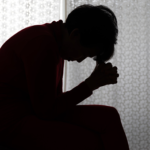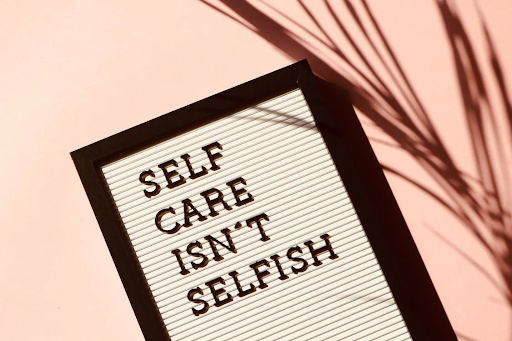8 Reasons Why Anxiety Attacks Occur
People experience anxiety attacks for various reasons. Anxiety is a state of apprehension, danger, and uneasiness. Many people as well as doctors believe that there is no cure or medicine to stop anxiety from occurring. However, with the right steps and mind-set, anxiety attacks can be stopped or avoided.
However, it's a challenge for plenty of individuals to acknowledge the true origin of their anxiety, but once they identify the source, it becomes easier to conquer it. So, we lists eight reasons why anxiety attacks occur:
1. Stress
When you are stressed, your body produces more adrenaline, cortisol and other stress hormones. This can cause an increase in heart rate, blood pressure and breathing rate.
These changes make it more difficult for your body to regulate its temperature, which can trigger chills, sweating or hot flashes. This is one reason why anxiety attacks are often accompanied by chills or hot flashes.
Anxiety attacks also make it difficult to sleep because they cause overstimulation of the brain. This can also lead to irritability and restlessness, which makes it difficult to relax during the day and fall asleep at night.
2. Physical illness
Anxiety and panic attacks are the most common mental illness in the United States. It's estimated that about 18% of people in the U.S. will experience an anxiety disorder at some point in their lives, and about 7% of the population will be affected at any given moment.
Anxiety disorders can be caused by a number of factors, including genetics and environmental influences. In addition to these factors, physical illness is one of the reasons why anxiety attacks occur.
The connection between physical health and anxiety is well documented. For example, people who have chronic illnesses such as asthma or diabetes have a higher risk of developing an anxiety disorder than those who don't have these conditions.
3. Hormone changes
Hormones play a significant role in the development of anxiety. Anxiety is associated with increased levels of cortisol, a hormone released by the adrenal gland. According to the National Institute of Mental Health (NIMH), cortisol can cause an increase in blood pressure, an increase in heart rate and muscle tension, as well as an increase in respiration. This explains why some people experience physical symptoms during an anxiety attack.
The hormones estrogen and progesterone also have effects on mood and behavior. Research suggests that these hormones may influence women's risk for developing anxiety disorders. Women with histories of depression or bipolar disorder often have abnormal menstrual cycles, which may be related to changes in their levels of these hormones.
The hormonal changes that occur during menopause can contribute to anxiety symptoms as well as mood swings and irritability. During menopause, women usually experience decreased estrogen production; this drop may be responsible for many psychological changes that occur at this time in women's lives, including mood swings, hot flashes and night sweats.
4. Medications
An anxiety attack can come on suddenly and without warning, or it can build up gradually over time. Anxiety attacks usually last from a few minutes to an hour, but some attacks may last longer.
Medications can interact with other medications to cause side effects that mimic panic attacks. In addition, some drugs may trigger panic attacks in those who are susceptible to them.
Although most doctors believe that medication is not the best way to treat anxiety disorders because of their potential for addiction and dependency, there are some medications that help reduce symptoms by altering brain chemistry or blocking certain neurotransmitters in your brain.
5. Sleep deprivation
Sleep deprivation is a state in which an individual has not had enough sleep. It can be caused by a number of factors, including insomnia, shift work, jet lag, and circadian rhythm disturbances. Symptoms include attentional lapses and increased susceptibility to distractions.
People suffering from sleep deprivation often have a higher risk of developing mental health problems such as depression and anxiety disorders. In some cases, however, they may actually experience positive effects on mood and cognition, at least in the short term.
In addition to its effects on mental health, sleep deprivation has been linked to physical health problems such as obesity and diabetes. Sleep-deprived people also tend to make more mistakes than those who get enough rest.
6. Verbal abuse
Verbal abuse can be defined as any negative communication that is expressed in a verbal manner. Verbal abuse can be done directly or indirectly through body language, gestures, and facial expressions.
This is a form of emotional abuse and it can have devastating effects on an individual's self-esteem and confidence. If you are being verbally abused by your partner, then there is a high chance that you will experience anxiety attacks.
Verbal abuse can be used as a weapon to control you and make you feel worthless. When someone tells you that you are useless or stupid, it will lead to low self-esteem and reduced self-confidence. These feelings may cause anxiety attacks because they make you feel vulnerable and insecure about yourself.
7. Unsupportive Family
When you're experiencing an anxiety attack, the last thing you want is for your loved ones to add to your stress. Unfortunately, this is exactly what happens when someone close to you has an anxiety disorder. Family members often don't know what to do or say in response to the person's symptoms, which can make the situation worse.
When someone is having an anxiety attack, they may feel like they're being watched or judged by other people. This can lead them to withdraw from certain situations that cause them anxiety and miss out on opportunities for growth and healing.
8. Excessive caffeine consumption
Caffeine is one of the most common stimulants in the world. It’s found in everything from coffee and tea to chocolate, sodas and energy drinks. Though caffeine can help you stay awake, it can also cause side effects like anxiety and nervousness.
However, caffeine affects people in different ways. Some people may experience an increase in energy and focus, while others may feel anxious or jittery after consuming caffeine.
If you consume too much caffeine, it can cause anxiety attacks in some people. Unfortunately, there’s no way to tell how much caffeine is too much for an individual person based on their sensitivity level alone since everyone reacts differently to it.
At the end of the day anxiety can be difficult to handle and manage, but with enough work and dedication it is possible to deal with it so you are living your ideal life.
For more helpful and informative insights, visit here.





